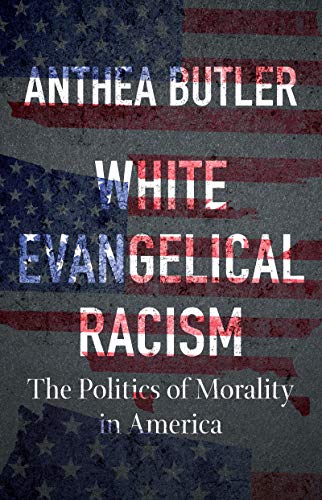White Evangelical Racism
The Politics of Morality in America (A Ferris and Ferris Book)
Anthea Butler
BOOK REVIEW

In a nation torn apart by divisions and fueled by conflicting ideologies, White Evangelical Racism: The Politics of Morality in America emerges as a searing examination of the intersection of faith, morality, and race. Anthea Butler's powerful prose provides a much-needed lens through which we can scrutinize the moral compasses of America's white evangelical community. With razor-sharp insight and scholarly rigor, Butler doesn't just present facts; she ignites discussions that compel you to question your beliefs and the societal structures surrounding them.
Butler delves deep into a disturbing reality: the coalescence of religious conviction and racial hierarchy. Her exploration challenges the notion that morality is an absolute, revealing how it is often manipulated to uphold systemic injustices. This vital work serves not only as a mirror reflecting the shadows of racism cloaked in evangelical rhetoric but also as a beacon urging us toward self-reflection and societal change. 📣
The book's brilliance lies in its ability to juxtapose personal narratives with historical context. Butler details how white evangelicals, who profess a gospel of love and acceptance, simultaneously perpetuate harm against marginalized communities. She expertly highlights the paradox of a faith that espouses compassion yet condones division, provoking readers to confront the uncomfortable truths embedded within their moral frameworks. It's not just a theological critique; it's a call to arms for those willing to engage with the complexities of faith and social justice.
Butler's background as a historian and a scholar of religion lends an authenticity to her insights. Her examination of the evangelical movement is not simply academic; it's born from a place of lived experience in America. She paints a picture of a community grappling with its legacy, drawing connections between the past and present while shedding light on the theological justifications used to maintain a status quo that benefits some while oppressing others.
Readers have responded with a mix of reverence and controversy. Some laud Butler for her fearless dissection of complex topics, calling it a necessary read for anyone seeking to understand America's moral landscape. Others, however, push back, arguing that her critiques oversimplify a faith that, for many, is deeply meaningful and transformative. This dichotomy in reaction only emphasizes the urgency of her message: as long as these discussions ignite such polarized responses, the work is far from over.
As you turn the pages of White Evangelical Racism, you will feel a tug at your conscience. Butler dares you to confront uncomfortable realities. How can a faith rooted in love be so often linked with oppression? It's a question that leaves you restless, wrestling with the complexities of belief in a racially stratified world.
This book is not just academic; it's a powerful invitation to engage in the messy, often painful discussions about morals and ethics within our society. The stakes are high, and Butler makes it clear that ignoring these truths has dire consequences. It's time to strip away the layers of complacency and confront the uncomfortable intersection of race and evangelicalism in America head-on. Your perspective on morality may never be the same again. 💥
📖 White Evangelical Racism: The Politics of Morality in America (A Ferris and Ferris Book)
✍ by Anthea Butler
🧾 176 pages
2021
#white #evangelical #racism #politics #morality #america #ferris #ferris #book #anthea #butler #AntheaButler